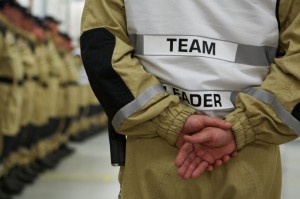
Faculty Member, Emergency and Disaster Management at American Public University
In the course of teaching courses in the emergency and disaster management (EDM) graduate program here at APU, I frequently receive questions from students looking for advice on entering into the emergency management field. One of the most common questions I get is what are the skills that emergency management organizations are looking for in a prospective hire?
Emergency management is a profession that requires entrants to have a solid foundation of training, education, and experience. Historically, emergency manager positions were filled by from the ranks of retired fire and police chiefs or military officers. Today, professional designations such as the Certified Emergency Manager from the International Association of Emergency Managers and formal education at both the graduate and undergraduate levels are raising the bar for entry into the field.
Emergency management is a difficult career to break into without an extensive base of experience in certain skill sets. However, these skills sets do not have to be specifically developed in an emergency management role and are common in several other fields. Flexibility, decision-making, and critical thinking in dynamic environments are the most critical skills for the future emergency manager and the current EDM student. For example, outside influences such as weather can dramatically change the objectives and priorities at an emergency just as easily as they can upset the student’s plan for completing weekly assignments often resulting in require rapid and creative changes of plan.
Theory and foundational principles can be obtained through education and training, but these concepts are just starting points in an emergency or disaster. In a disaster, the situation changes rapidly and requires strong, decisive actions; the emergency manager must be able to make solid decisions in a time-compressed environment without all of the required information. Completing EDM coursework requires students to exercise many of these same skills.
The future emergency manager and current EDM student must have strong communications skills. Whether it is communicating with agency representatives in an EOC or requesting extra time from a professor on an assignment, the ability to clearly and concisely make your point is paramount to ensuring that your message is understood.
Time-management and organizational skills are also important for the prospective emergency manager and EDM student. Emergency management activities require multiple tasks to be performed, information to be processed, and priorities to be established on an ongoing basis. As an emergency manager, you must be able to quickly shift gears and move on to another task. You will likely never have enough time to do everything on your list with as much time as you would like. Learning how to organize your work, manage your time, and look for efficiencies will make you more effective in both a professional and academic setting.
Finally, whether you are a student or an emergency manager always remember that you cannot do everything on your own and you need to ask for help when needed before it is too late. Incidents cannot be handled by one person alone and the emergency manager must rely on the members of the team to be successful. If you run into problems in the classroom your instructor can help you as well, but you need to ask before things get beyond your ability to do anything about it.
About the Author:
Dr. Michael Charter is an Associate Professor in the Emergency and Disaster Management and Fire Science Programs. He is a Captain with the Spokane Valley Fire Department in Washington State and serves on a regional Type III Incident Management Team. He is a Certified Emergency Manager and is active in the field of emergency management.
Comments are closed.